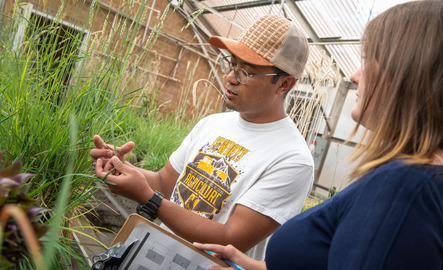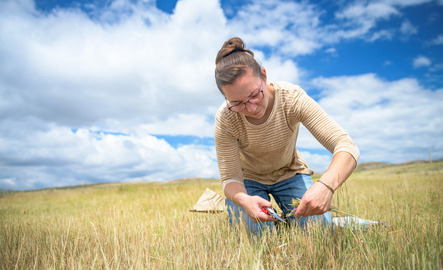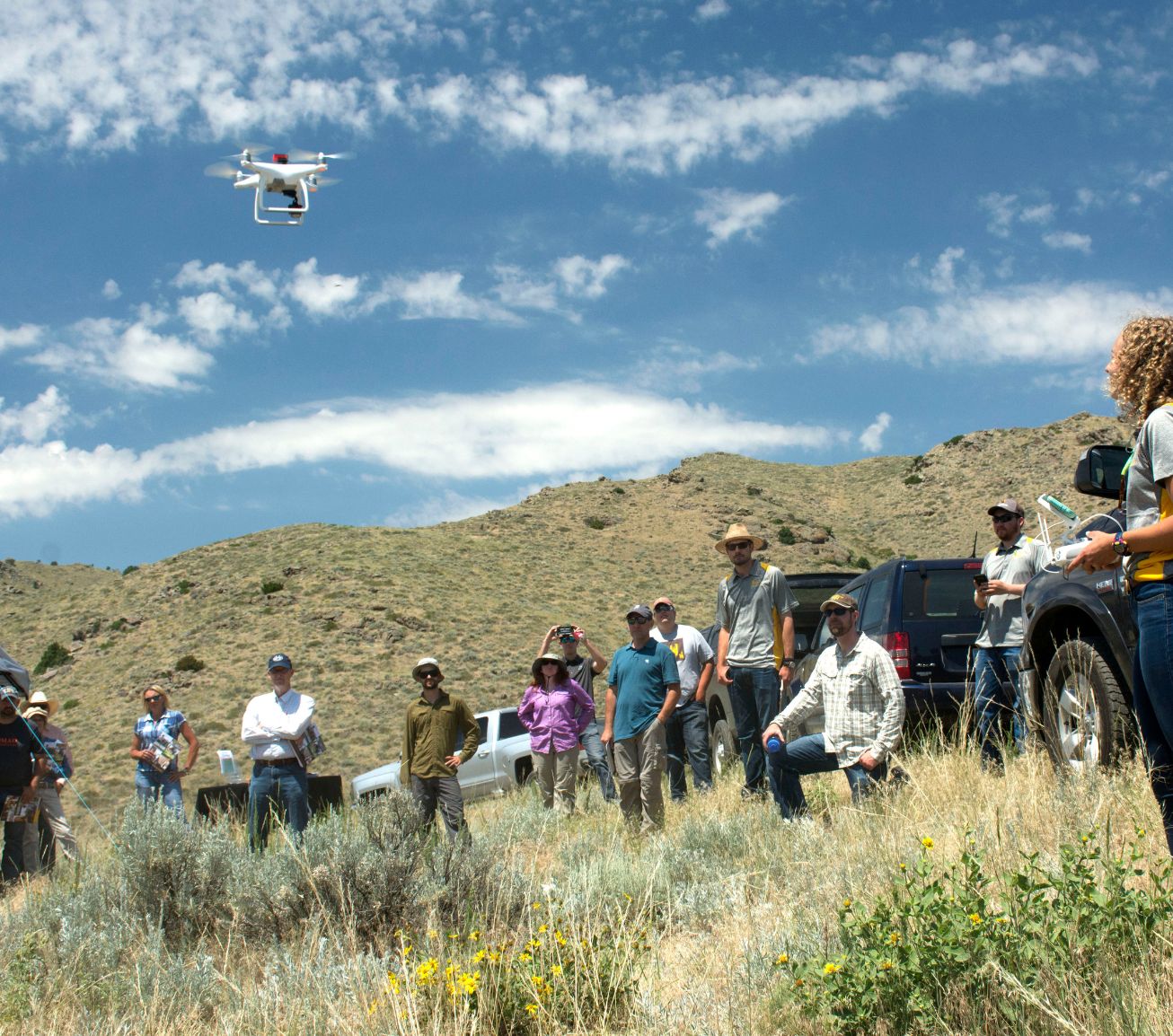About the Plant Protection Minor
Make a positive impact on the future of food and sustainability!
The plant protection minor gives students a well-rounded education in plant diagnostics,
agronomy, horticulture, and other key topics. Students take a minimum of 19 credit
hours and may choose classes from a list of approved options.
The minor in plant protection is NOT for plant production & protection majors.
If you're interested in majoring in plant protection, our Bachelor of Science in Plant Production and Protection has an integrated pest management concentration you can pursue!

UW's Department of Plant Sciences offers four minors and a Bachelor of Science in Plant Production and Protection. Students pursuing the bachelor’s degree may choose a concentration in agronomy,
horticulture, integrated pest management, or agroecology and evolution.
Students interested in plant sciences who are not pursuing the bachelor’s degree are encouraged to declare one of our four minors.
Minors
- Agronomy
- Agroecology
- Horticulture
- Plant Protection

What can you do with a plant protection minor?
Plant protection graduates are ready for careers in agriculture, food production, environmental conservation, and more. Many of our grads apply their knowledge with federal agencies, state agencies, nonprofit organizations, and private companies.
Here is just a small sampling of jobs and careers in plant protection:
- Land management
- Horticulture operations
- Agronomy
- Seed and crop protection
- Non-profit work
- Invasive species management
- Private farming
- Environmental conservation
- Plant diagnostics
Plant protection is the science and practice of safeguarding crops and plants from pests, diseases, weeds and environmental threats to ensure healthy growth and sustainable yields. This interdisciplinary field combines knowledge from entomology, plant pathology, weed science and integrated pest management to develop effective, environmentally responsible strategies for managing threats to plant health. A focus on plant protection is essential to modern agriculture, helping to support food security, promote biodiversity and reduce reliance on chemical treatments through sustainable practices.
Wyoming is an ideal place to study plant protection thanks to its rich natural landscapes, diverse ecosystems and strong ties to agriculture. This unique setting allows students to study how plants respond to real-world challenges like pests, drought and invasive species in varied environments. With access to cutting-edge facilities, expert faculty and wide-open spaces for fieldwork, UW offers an immersive learning experience that prepares students to protect plant health in both agricultural and natural systems.
- Agriculture and agribusiness
- Biotechnology and plant genetics
- Environmental consulting
- Crop protection and pest management
- Seed and fertilizer companies
- Government agencies (e.g. USDA, EPA, state agriculture departments)
- Horticulture and nursery management
- Food production and processing
- Sustainable farming and agroecology
- Research institutions and universities
- And more!
"Plant protection offers in-depth knowledge about plants in both agricultural and ecological systems. I personally enjoyed the program due to the flexibility that it allows for interdisciplinary studies. This is an excellent degree to couple as a dual degree or to allow for multiple minors."
- Chelsea Turner | B.S. in Plant Production and Protection (2024)


